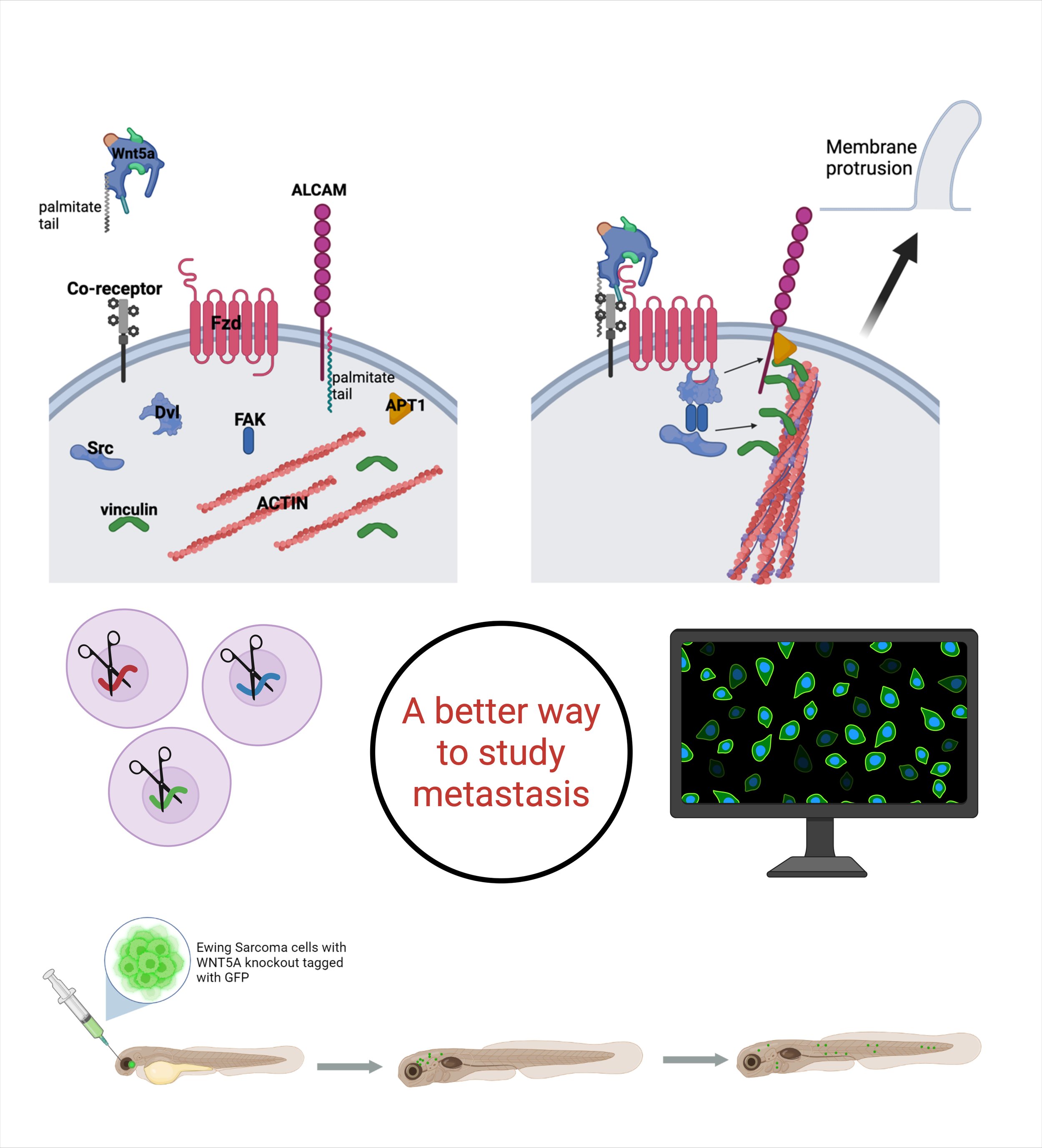Our Research
Non-canonical Wnt signaling
Metastasis is a complicated, multi-step process that involves invasion away from primary tumor, intravasation into vasculature, extravasation, and growth of metastatic focus.
Non-canonical Wnt signaling has been implicated in the biology of Ewing Sarcoma metastasis. Our focus is on Wnt5a, which is a part of the non-canonical pathway.
Porcupine is the only enzyme that mediates Wnt ligand palmitoylation, which is necessary for Wnts to bind to their receptor.
We hypothesize that LGK974 inhibits Ewing sarcoma metastasis by blocking Wnt5a-mediated beta-catenin independent signaling.
Through high-throughput drug screening using our ES zebrafish model, we identified gabaculine, an irreversible GABA transaminase (GABA-T) inhibitor, as a potential target.
Cancer cells rely on the TCA cycle for biosynthetic precursors and ATP production. The GABA shunt is important to maintain TCA cycle intermediates
We study whether blocking the production of TCA cycle intermediates through the GABA shunt will impair Ewing Sarcoma growth and metastasis.
HTS to identify novel targets in Ewing Sarcoma
Notch1 Signaling
Notch1 is a clinically relevant target that plays a role in angiogenesis. It has to be cleaved 3x to translocate into the nucleus by Y-secretase.
Nirogacestat has recently been approved by the FDA and it blocks Y-secretase, preventing Notch1 translocation.
Our ESxkdrl zebrafish line has the vasculature tagged with GFP, which allows us to study changes in angiogenesis with drug treatment.
We want to study the crosstalk between Notch1 and Wnt signaling in Ewing Sarcoma.



